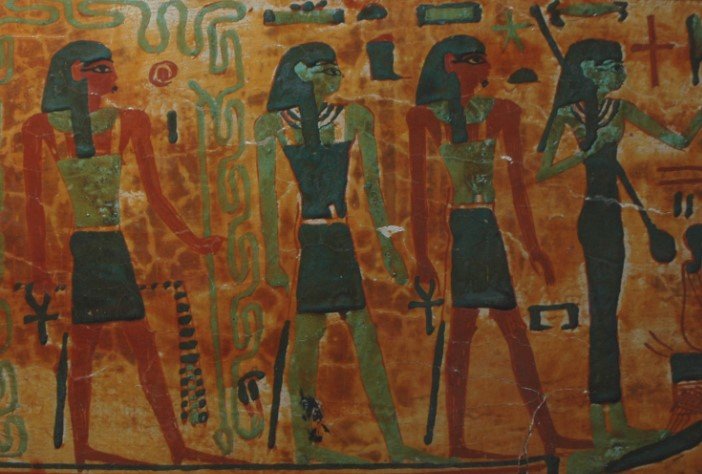Flood stories are everywhere in ancient cultures — from the biblical tale of Noah’s Ark to the Greek myth of Deucalion and even the Mesopotamian Epic of Gilgamesh. But what about ancient Egypt? Did they have a flood myth like these? It’s a question that’s puzzled historians and mythologists for years. Spoiler alert: the answer is a bit more complicated than you might think.
What Flood Myths Share Across Cultures
Flood myths have a way of sounding strangely familiar, no matter where you hear them. Usually, they kick off with a world that’s not so great — humans are up to no good, the gods are fed up, and boom, a massive flood wipes out most of the population. But a few lucky folks get a heads-up and escape, often by building a boat or finding some safe refuge. After the waters recede, these survivors rebuild civilization.
You see this story in the Bible’s Noah’s Ark, the Greek tale of Deucalion and Pyrrha, and even in the Epic of Gilgamesh, where Utnapishtim survives a great flood sent by the gods. These myths share a similar moral undertone — a warning about human wickedness and the hope for renewal.

Egypt’s Relationship with the Nile and the Concept of Flooding
Egypt’s story is inseparable from the Nile River. Every year, the Nile flooded its banks, bringing rich, fertile soil that allowed Egyptian civilization to thrive. Unlike the destructive, apocalyptic floods in other myths, the Nile’s flooding was a blessing, a cycle of life and renewal.
Because of this, it makes sense that the ancient Egyptians saw floods differently. The annual inundation wasn’t a punishment but a divine gift. This key difference might explain why a traditional “great flood” myth, like those found elsewhere, doesn’t appear in Egyptian lore.
Ancient Egyptian Creation and Chaos Myths
Instead of a flood wiping out humanity, ancient Egyptian myths often focused on creation emerging from watery chaos. At the beginning of time, the world was a watery void called Nun. From this chaos, the first land rose, and the gods began to organize the universe.
The chaos water is a recurring theme. It represents disorder, darkness, and nothingness — a cosmic threat to order (maat). But it’s not the same as a flood destroying civilization. It’s more like the universe emerging from the primordial ocean.
Interestingly, this watery chaos might be seen as the Egyptian equivalent of flood myths elsewhere — not a story about divine wrath, but about the origin of everything.
Some Scholars See Parallels, But No Direct Flood Myth
There are a few texts and symbols some scholars point to as hints of flood-like ideas. For example:
-
The “Destruction of Mankind” myth where the sun god Ra punishes humanity, though not with a flood.
-
The “Great Flood” in the Coffin Texts, which some interpret as a symbolic cleansing.
But these aren’t exactly what you’d call a classic flood story with a boat and survivors. Egypt’s focus was more on cyclical renewal than a single cataclysmic event.
Here’s a simple table comparing key elements of flood myths across cultures:
| Element | Bible (Noah) | Greek (Deucalion) | Mesopotamia (Gilgamesh) | Ancient Egypt |
|---|---|---|---|---|
| Divine punishment | Yes | Yes | Yes | No (symbolic chaos) |
| Flood destroys world | Yes | Yes | Yes | No (creation from chaos) |
| Survivors by boat | Yes | Yes | Yes | No boat story |
| Moral lesson | Yes | Yes | Yes | Focus on order vs chaos |
So, What’s the Takeaway?
Ancient Egypt didn’t have a flood myth in the classic sense that you see in the Bible or Mesopotamian tales. Their worldview centered on the Nile’s nurturing floods, not a world-ending catastrophe. Instead, the myths dealt with creation, order, and the ongoing battle against chaos.
It’s pretty fascinating when you think about it — how one natural event, the Nile’s flooding, was life-giving to the Egyptians, while other cultures turned floods into stories of doom and divine retribution.
The ancient Egyptians’ unique perspective reminds us how much environment shapes culture. No massive flood wiping everything out here — just a steady, reliable flow of water sustaining one of the greatest civilizations in history.
